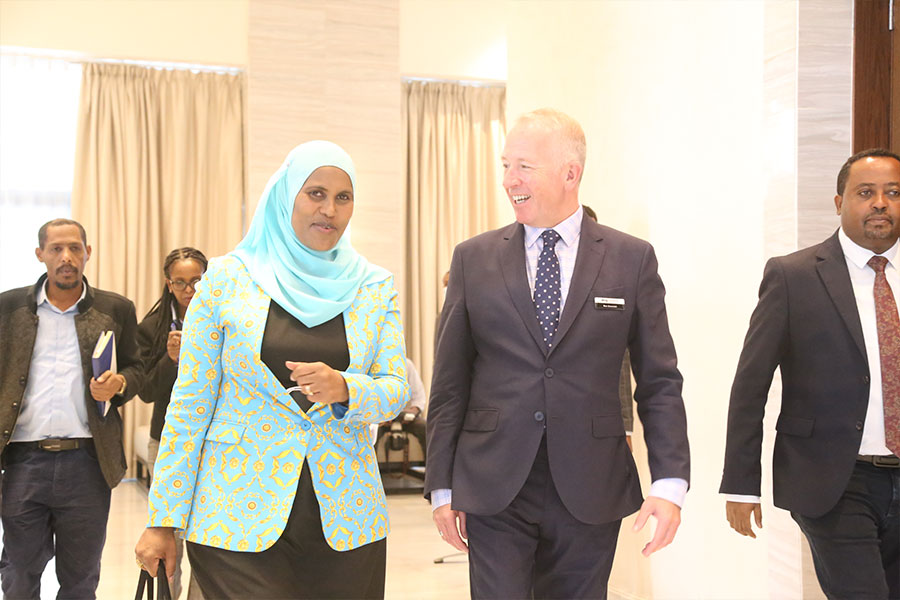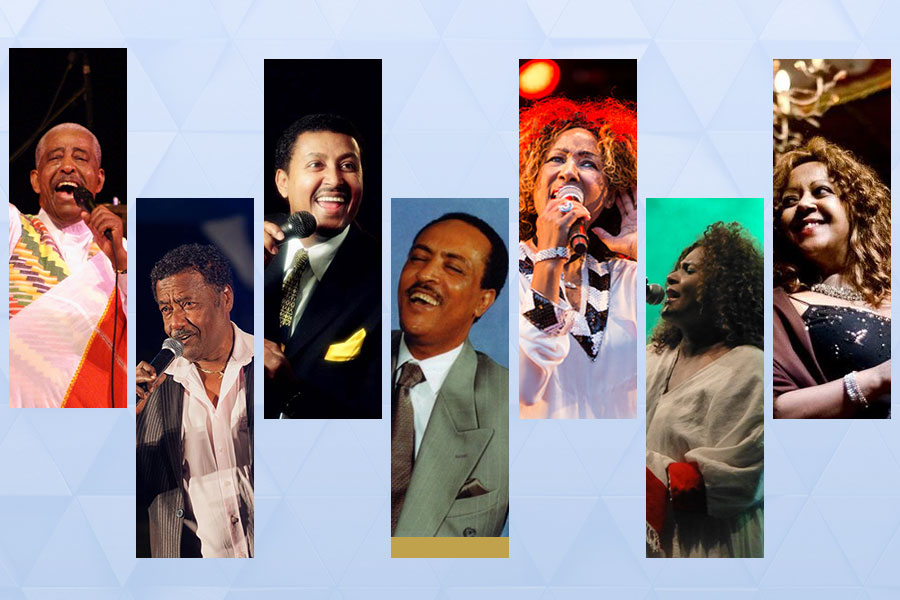
Radar | Jul 09,2022
Before the global lockdown, the rhythmic tunes of bands playing indigenously-inspired music would pulsate through the air at Fendika Cultural Centre, an azmari betlocated in the very heart of Kazanchis.
These bands have garnered loyal listeners who flock to Fendika bi-weekly to listen to the bands' groovy tunes. Yet underneath the warm tunes and rhythmic melodies, there lies the unaccomplished mission of studying and preserving indigenous Ethiopian music.
Indigenous music has been under serious threat globally. It was not until recently that the global community came together to recognise the peril which "intangible cultural heritages" are in.
Adopted in 2003, a convention was set up by UNESCO “to safeguard the practices, representations, expressions, knowledge, and skills that communities, groups and, in some cases, individuals recognize as part of their cultural heritage."
Ethiopia, which currently has nine world heritage sites, tends to focus on the preservation of the tangible ones. From the Churches of Lalibela to the Omo Valley, the focus has mainly been on conserving physical sites. Unfortunately, the limited focus on intangible cultural heritages, in addition to political instability, large-scale infrastructure projects, and poverty, have put them under serious threat.
Before the global lockdown, the rhythmic tunes of bands playing indigenously-inspired music would pulsate through the air at Fendika Cultural Centre, an azmari betlocated in the very heart of Kazanchis.
Furthermore, as is the case in Ethiopia, the commodification of intangible heritages due to tourism has severely contributed to the loss and lack of the evolution of indigenous music.
“While tourism can contribute to reviving traditional performing arts and give a market value to intangible cultural heritages, it can also have a distorting effect, as the performances are often reduced to show adapted highlights in order to meet tourist demands,” as UNESCO aptly observed.
In Addis Abeba, cultural venues attracting tourists often do just that. Indigenous music is condensed for it to be more palatable to tourists. While it is essential to increase revenue, the danger lies in focusing on the promotion of intangible heritages solely for these visitors.
Active research, documentation, preservation, and promotion of the diverse music of indigenous groups is essential to the dissemination of cultural knowledge across generations in Ethiopia.
This is where people that record and analyse the musical heritages of the dozens of lingo-cultural groups of Ethiopia comes in. The likes of Teferi Assefa, founder of Negarit Band, have a grassroots approach to preserving indigenous music. He attends various ceremonies, interacts with tradition musicians, and records the story that the music in these societies carry.
From the colourful and lively sounds of weddings in Harrar to the warm guttural sounds of Lalibela’s beggars, to hear them is to realise the vibrant cultural tapestry that is rapidly disappearing.
While properly archiving traditional music is vital, their renewal as part of preserving them is equally important. With the loss of indigenous music and cultures worldwide, the creative emulsion of traditional music with contemporary rhythms is essential to its survival on a global stage.
“To assure the continuity of tradition ... [we need to] find new creative outlets, that is, renew forms to suit the demands of our time without damaging the essence,” said Peter Crossley-Holland, an ethnomusicologist.
The concept of the conservation of indigenous musical heritage through a creative marriage with contemporary tunes is relatively new and abstract to the Addis music scene. Many venues just want bands to do covers of popular songs.
The lack of venues in Addis willing to support innovative projects such as these dampens the progress needed to be made to protect and preserve indigenous music. Of course, the demand of the audience plays a big role in this dynamic as well.
However, Fendika, perhaps the most popular azmari betin all of the city, which recently received an endorsement from Jack Dorsey, Twitter’s founder, has been able to bridge that gap. Fendika’s lively music scene has made the venue a local and tourist favourite. Behind its unassuming green doors, Fendika contains a world as diverse as the crowd it draws in. On any given night, wafts of sauteed beef, aka tibs, is accompanied by waiters dashing around with bottles of tej, honey wine.
Although a tourist favourite, Fendika has veered away from restricting musicians to just traditional music. This has been seen as a sort of haven for musicians working on preserving the music of Ethiopia by marrying traditional music with contemporary styles of playing.
It is essential to have more spaces around Addis that encourage innovative bands to play and share their work. Traditional music, or what is known as traditional music, cannot be limited to homogenised pieces that are mainly constructed for commercial purposes.
In the face of rapid rural-urban migration and stark political differences, Ethiopia is losing its indigenous heritages. The task of researching, recording, and transcribing indigenous music and art should be taken up by the government. Whenever possible, those of us who are venue owners or members of audiences in Addis should actively contribute toward the preservation of stories and ways of existing.
PUBLISHED ON
May 23,2020 [ VOL
21 , NO
1047]


Radar | Jul 09,2022

Editorial | Mar 23,2024

Fortune News | Jan 05,2019

Radar | May 08,2021

Fortune News | Feb 16,2019

Radar | Jan 27,2024

Radar | Feb 08,2020

View From Arada | Nov 21,2020

View From Arada | Apr 26,2025

View From Arada | Jun 03,2023

Dec 22 , 2024 . By TIZITA SHEWAFERAW
Charged with transforming colossal state-owned enterprises into modern and competitiv...

Aug 18 , 2024 . By AKSAH ITALO
Although predictable Yonas Zerihun's job in the ride-hailing service is not immune to...

Jul 28 , 2024 . By TIZITA SHEWAFERAW
Unhabitual, perhaps too many, Samuel Gebreyohannes, 38, used to occasionally enjoy a couple of beers at breakfast. However, he recently swit...

Jul 13 , 2024 . By AKSAH ITALO
Investors who rely on tractors, trucks, and field vehicles for commuting, transporting commodities, and f...

Jul 5 , 2025
Six years ago, Ethiopia was the darling of international liberal commentators. A year...

Jun 28 , 2025
Meseret Damtie, the assertive auditor general, has never been shy about naming names...

Jun 21 , 2025
A well-worn adage says, “Budget is not destiny, but it is direction.” Examining t...

Jun 14 , 2025
Yet again, the Horn of Africa is bracing for trouble. A region already frayed by wars...